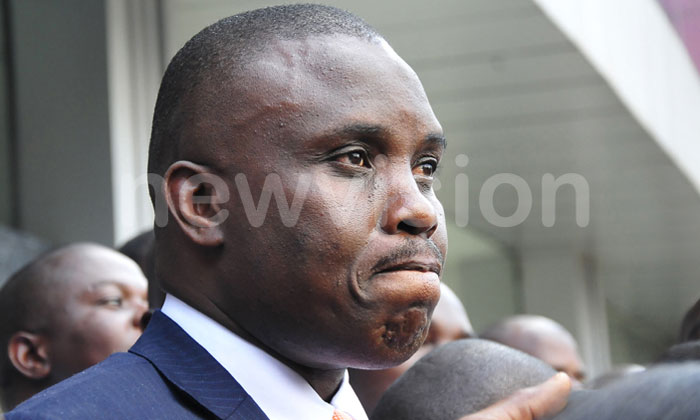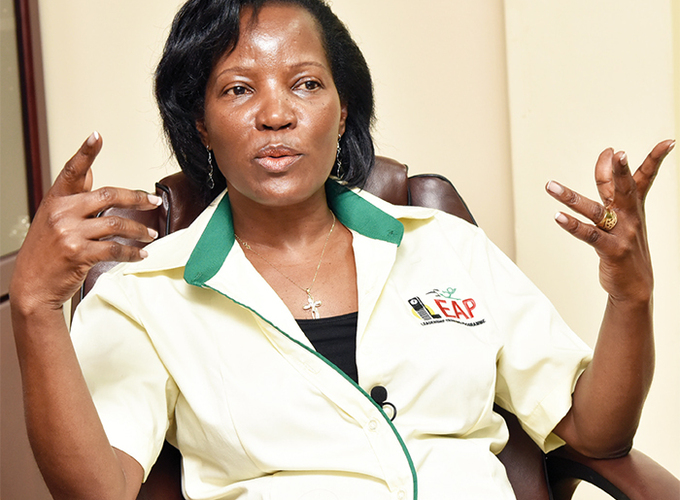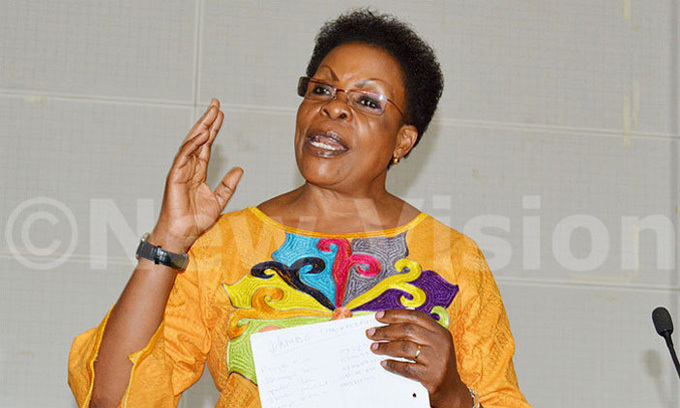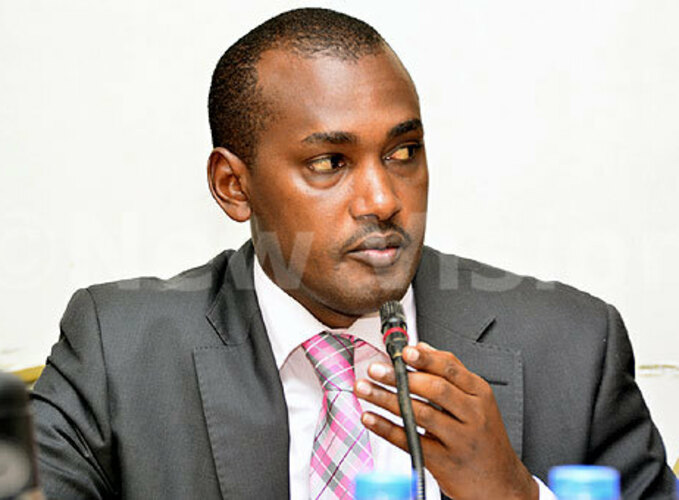Does KCCA Bill 2015 leave Lord Mayor empty?
May 16, 2017
The bill has already drawn sharp criticism from the Lord Mayor. Erias Lukwago believes the intention is to take away his political power and disenfranchise voters in Kampala.

Kampala Capital City Authority (KCCA) Lord Mayor, Erias Lukwago. Photo/File
The Kampala Capital City Authority (KCCA) Amendment Bill 2015 government tabled before Parliament last week has come with a number of critical changes at City Hall.
The bill chops the critical roles of the Lord Mayor under the current KCCA Act, 2010. The proposed changes in the procedure of electing the lord mayor are also critical.
The bill has already drawn sharp criticism from the Lord Mayor. Erias Lukwago believes the intention is to take away his political power and disenfranchise voters in Kampala. Kampala Capital City Authority (KCCA) executive director Jennifer Musisi
Kampala Capital City Authority (KCCA) executive director Jennifer Musisi
The bill also upgraded the academic qualifications of councillors. If enacted into law, illiterates will in the near future be chased away from contesting for councillorship at KCCA.
The bill says that for any person to contest for the council seat should have the same qualifications for contesting for a Parliamentary seat. The academic requirement for MPs is an A-level certificate.
The bill further seeks to operationalize a Metropolitan Physical Planning Authority (MPPA) with its own executive director appointed by the Minister of Kampala.
The KCCA Act 2010 mentions the MPPA but none of the successive ministers of Kampala has in the past constituted it.
The MPPA will incorporate the districts of Mukono, Wakiso and Mpigi. The chief administrative officers of those districts will be members of the authority but x-officio who won't have the rights to vote on any matter.
New Bill reduces Lord Mayor's power
The bill reduces the powers of the Lord Mayor under Section 11of 2010 KCCA Act. The Lord Mayor also loses the role of the political head of Kampala.
The office bearer in the bill ceases being the head of the authority in developing strategies and programmes for the city.
These two roles have been the key sources of power to the Lord Mayor. Without them, the lord mayor remains a lame duck with no influence in the city.
But the bill leaves the Lord Mayor to perform a few functions, such as presiding over council meetings, hosting foreign and local dignitaries on behalf of the authority.
Beti Kamya, the current Minister for Kampala says making the Lord Mayor the political head of Kampala contradicts with the Constitution. Kamya says the Constitution makes the President of Uganda the head of every institution in the country. Minister for Kampala, Beti Kamya
Minister for Kampala, Beti Kamya
While presenting the bill to Parliament in 2015, the then Minister of Kampala, Frank Tumwebaze said the bill was intended to strengthen and streamline the governance of the city by drawing clear lines of distinction between roles of policy makers and administrators.
He argued that the apparent fusion of roles of the Lord Mayor, KCCA Executive Director and Kampala Minister had largely contributed to the governance problems.
Election of Lord Mayor
In the bill, clause 7 seeks to replace section 9 of the KCCA Act 2010. The clause provides that the Lord Mayor and Deputy will be elected by the council from among the councillors.
It's important to note that although the ruling National Resistance Movement (NRM) has taken about two decades without producing a mayor in Kampala, in the previous term-2011-2016, the party had the majority number of councillors at City Hall. That situation would give NRM a chance to reclaim the city mayorship.
According to the bill, the election of the Lord Mayor and deputy shall be presided over by the Electoral Commission. The person to take thet office should have garnered two-thirds of all the members of the Council.
In a situation where Forum for Democratic Change (FDC) and NRM have had the majority of councilors at KCCA, under the amendments Lukwago would not be elected by the councilors. Lukwago stood as an independent in the previous election and would find it hard to garner support of NRM and FDC councilors for the seat.
Current arrangement
Currently, the election of the Lord Mayor is by universal adult suffrage. Lukwago has always won with the largest majority under the current system. The current system is in line with the 1995 Constitution that empowers Uganda's citizens to choose their leaders.
Position of the deputy lord mayor
After being elected under the adult suffrage system, the lord mayor has the powers to appoint his deputy. But in the past, Lukwago has found challenges picking the best candidate for a deputy from the over 20 councilors.
That is why between 2012 and 2016, the city, for example, ran without a substantive deputy lord mayor. Lukwago delayed to appoint a deputy between his allies Bernard Luyiga and Sulaiman Kindandala. The situation worsened when the mayor (Lukwago) was censored in 2013 and KCCA programmes stalled because there was no deputy to take over the mantle.
Lukwago's position
Lukwago says the bill is solely targeting him. He has vowed to take the war against the bill to the doors of the ruling government officials who are promoting it. He says he will use the city voters to counter government. He has also asked for a referendum to be conducted for voters to decide how they want to be governed.
"The new Bill is not intended to iron out the contradictions and clash of roles in the KCCA Act of 2010 but rather an underhand method designed to fight me out of office. Frank Tumwebaze the former minister of Kampala was the architect of the Bill harboring intentions to push me out," Lukwago said recently after the bill was tabled.
"It is disheartening to note that government is taking this direction. It is disturbing. It is a matter which they have been grappling with for a long time because the ruling government knows they cannot beat us in Kampala."
Background of the bill
In December 2014, the then Prime Minister, Amama Mbabazi made an assurance to Parliament of Government's intention to deal with the governance question in Kampala through amendment of the law. He was overwhelmingly supported and the speaker gave a one month deadline to have the amendment bill presented to the floor of Parliament.
However, the bill was first tabled before Parliament by Tumwebaze in 2015. The current State Minister for Kampala, Benna Namugwanya resurrected it last week.
Defending changes in procedure of electing Mayor
Tumwebaze said that he saw nothing wrong with the Mayor being elected by councilors. "What then is wrong with having the lord mayor elected by the same legislative council he/she chairs just like it is for the national parliament? Can we say that the people of Uganda are disenfranchised because they don't vote for the Speaker of Parliament through adult suffrage?" He said.
Tumwebaze further explained that the rationale behind the proposal of changing the mode of election of the lord mayor and all other division mayors is for purposes of ensuring that they remain accountable to the Council they chair.
"Just like in the case of Speaker and Deputy Speaker of Parliament who are elected by Members of Parliament. Besides, the law already vests the same Councils with authority to remove a Lord Mayor or Division Mayor," he added.
Bill throws out Illiterate councilors
The bill also eliminates illiterates at KCCA. Any one eyeing the councillorship in Kampala city will have passed senior six or be in position of its equivalent, the bill.
This is not the first time to tag academic qualifications on the councillorship positions. In 2014, KCCA legal affairs committee, in its report to Tumwebaze proposed the same.
The committee wanted those contesting for division councillorship positions to be senior four graduates, while those eyeing to join the City Hall to have passed senior six or its equivalent.
 Former Minister for Kampala, Frank Tumwebaze
Former Minister for Kampala, Frank Tumwebaze
Among the reasons, tagging academic qualifications, members of the legal committee argued was that they wanted that councillors to be able to follow and understand technical issues in KCCA.
Under the current KCCA Act, academic qualifications are not needed one to be elected as a councillor. Bruhan Byaruhanga, the chairperson KCCA's legal affairs committee told Sunday Vision that he backs the move to have councillors who have academic qualifications.
"It has been long overdue. I would even have proposed that we have councillors with bachelor's degrees. Many councillors find it hard to the read budget reports and other documents presented by KCCA technical people because they are written in English," Byaruhanga, Kyambogo University councillor explained.
Illiterate councillors eliminated
In the new bill, KCCA is a no go area for illiterates. Any one eyeing the councillorship in Kampala city will have passed senior six or having its equivalent.
This is not the first time to tag academic qualifications on the councillorship positions. In 2014, KCCA legal affairs committee, in its report to Tumwebaze proposed the same.
The committee wanted those contesting for division councillorship positions to be senior four graduates, while those eyeing to join the City Hall to have passed senior six or its equivalent.
Among the reasons, tagging academic qualifications, members of the legal committee argued was that they wanted that councilors to be able to follow and understand technical issues in KCCA.
Under the current KCCA Act, academic qualifications are not needed one to be elected as a councillor. Bruhan Byaruhanga, the chairperson KCCA's legal affairs committee told Sunday Vision that he backs the move to have councillors who have academic qualifications.
"It has been long overdue. I would even have proposed that we have councilors with bachelor's degrees. Many councilors find it hard to the read budget reports and other documents presented by KCCA technical people because they are written in English," Byaruhanga, Kyambogo University councillor explained.
Kampala Central councillor Moses Katumbu, also agreed with Byaruhanga.
Both proposed that the division councilors should be required to senior four qualifications.
On the issue of the election of the Lord Mayor, Byaruhanga the city dwellers should be left to vote their leaders.
He suggested instead the authority to have the Speaker and the deputy Speaker, elected among the councilors.
"This will help to avoid many conflicts, since the Speaker will have the powers of chairing the authority meetings," Byaruhanga argued.
Why government has interest in Kampala
While he was presenting the Bill Tumwebaze in 2005reminded his critics that, Article 5 of the Constitution was amended to reflect the special status of Kampala as the Capital City of Uganda.
"Kampala ceased to be a district under the Local Government system, and the Capital City was to be administered by the Central Government," he said.
"However, what any person aspiring to be lord mayor needs to be reminded about is that he/she is not the primary administrator of the Capital City."
Tumwebaze said the primary administrator of Kampala is the Central Government which does so as per the constitution. "The Lord Mayor and the council administer the city on delegation by the central government and its policy takes precedent."
